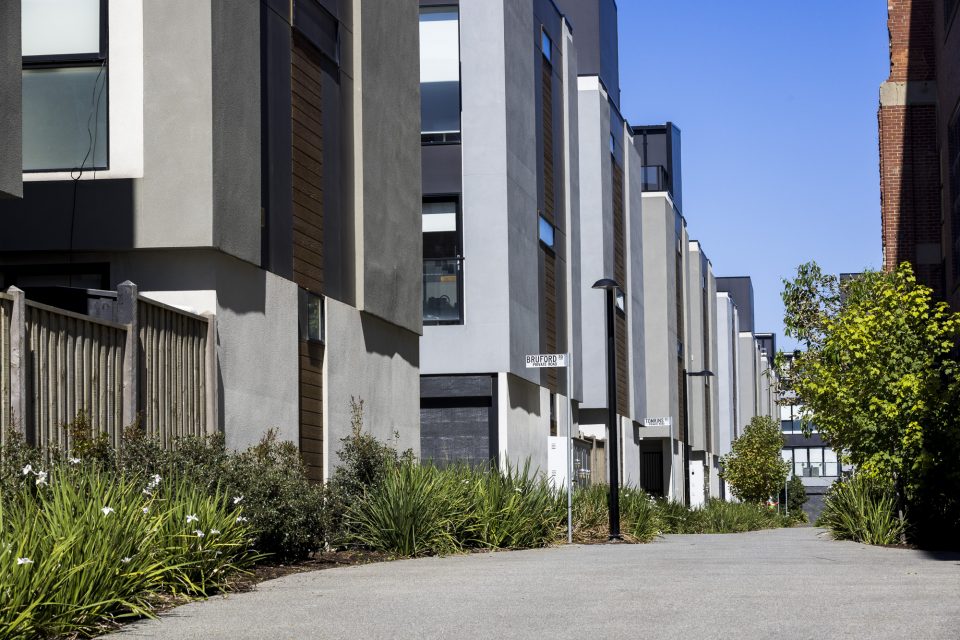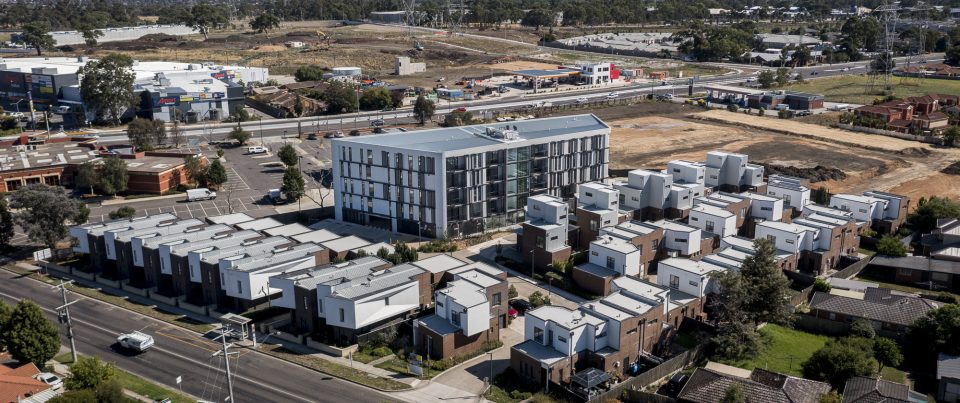What You Need To Know Before Buying A Strata Property

21.02.22
Are you thinking about buying a townhouse or unit that’s part of a body corporate and you’re confused about what to look for?
Here are the five things you need to know before signing on the dotted line.
- Make Sure You Know What You’re Buying
Are you just buying the ‘air space’ inside the property, are the walls, windows really yours?
Strata properties are different to your standard house on a block of land as you have something called ‘common property’. As the name suggests, common property refers to property that is jointly owned by all owners and is the responsibility of the body corporate to repair and maintain.
It is important to check whether you as the owner will be responsible for repairing and maintaining the windows, roof, external walls or gardens of your property. A lawyer can review the plan of subdivision, which you can find in the section 32, so you don’t have any surprises down the track. For example, you may find that the body corporate owns the roof above your townhouse or unit so you would require permission from the body corporate committee to install an air conditioner or solar panels on the roof.
2. Find Out What The Body Corporate Fees Are And What’s Included
This information can be found in the owners corporation certificate as part of the section 32, also known as the vendor contract. It is important to factor these ongoing costs into your decision to make sure you don’t get caught short. You’ll probably find that insurance, management fees and gardening make up a large percentage of the budget for standalone units and townhouses. Fees can vary significantly depending on the size and type of building. Some vendor statements don’t attach the full financial statements or budget in the vendor statement so you should always request this before purchasing.
3. Are The Fees Likely To Go Up (Or Down) In The Coming Years?
An easy way to do this is to check the annual general meeting minutes attached to the vendor contract for any discussions regarding maintenance or issues at the property. If the meeting was held a couple of months prior, it’s worth checking whether the repairs have been completed. The body corporate manager is required to disclose any ongoing issues at the property in the owners corporation certificate, but you shouldn’t rely solely on this.
Things to look out for that could potentially cost you thousands of dollars include:
- Special levies which have been approved along with their date for payment
- Details of repairs, maintenance or other works that may incur extra charges
- Legal proceedings involving the body corporate and any circumstances likely to lead to proceedings (eg. unpaid debts or significant disputes)
- Details of any contracts, leases, licenses or agreements affecting the common property
- Details of any outstanding notices or orders served on the body corporate in the past 12 months
You should also check whether the body corporate has surplus funds or money set aside for future repairs & maintenance.
If you require further information, you should contact the real estate agent who will request this from the body corporate manager.
4. Is The Body Corporate Being Well Managed?
A simple look around the property will often give you a lot of information regarding how well the block is being maintained. Poor maintenance could indicate penny pinching committee members or could indicate an ineffective body corporate manager. Are there obvious repairs which are not being attended to? Are the garden areas overgrown?
This could potentially be an opportunity to buy the property at a lower price and work with the other owners to increase the overall rental potential or market value of the entire block. A professional body corporate manager can assist with these conversations.
5. Don’t Get Stuck With The Previous Owner’s Strata Debts
You’d be surprised how many conveyancers or lawyers don’t check whether the previous owner is up to date with their fees at settlement. There is no way to recover these funds from the previous owner once the property title has been transferred, so as the new owner you are liable for any fees still owing. I had a case recently where a new purchaser had to pay over $8,000 in fees owed by the previous owner.
I’d love to hear your experiences with purchasing your strata property. Did you find the tips useful or, for the seasoned property investors, is there anything you wished you knew before purchasing? Get in touch with us today if you have any questions or comments.




